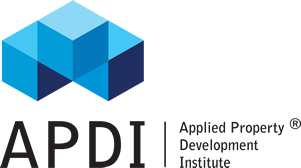APDI - CPD Programs
CPD Accredited Courses written specifically for Property DevelopmentAPDI CPD Accredited – Property Development Courses

APDI is accredited with the CPD Standards Office to deliver and award CPD Points for its Property Development courses. With the APDI’s CPD Accreditation, you are able to learn key Property Development specific topics and gain points attributable to your professional membership bodies. Whether you are a member of:
- Real Estate Institute of Victoria (REIV) – https://reiv.com.au/
- Planning Institute of Australia (PIA) – https://www.planning.org.au/
- Architects Institute of Australia (AIA) – http://architecture.com.au/
- Australian Institute of Project Managers (AIPM) – https://www.aipm.com.au/home
- Australian Property Institute (API) – https://www.api.org.au/
- Royal Institution of Chartered Surveyors (RICS) – http://www.rics.org/au/about-rics/where-we-are/oceania/
- Real Estate Institute of Australia (REIA) – https://reia.asn.au/
- Queensland Law Society (QLS) – www.qls.com.au
- Victorian Law Society (VLS) – www.liv.asn.au
- Law Society of New South Wales (LSNSW) – www.lawsociety.com.au/
- Engineers Australia – www.engineersaustralia.org.au
You are eligible to gain CPD Points through the Applied Property Development Institute’s courses, ensuring that you fulfill your annual professional development quota and also gain valuable learnings from a trusted Institute where material is written in conjunction with our Curriculum Advisory Committee to ensure you are gaining the best-in-industry knowledge you need.
Get your CPD accreditation from the APDI today!
FAQ
What is APDI? Who are the course educators? How long is the Member Program? How much does it cost? Find out the answers to these questions & more in our FAQs section.
Important Dates
When is the next closing date for enrolments? When should I plan to complete each unit? Check out the important dates for your calendar.
Pathways to Membership
Discover the different pathways to membership offered by the APDI program, including the flexibility to study course units independently of each other.
